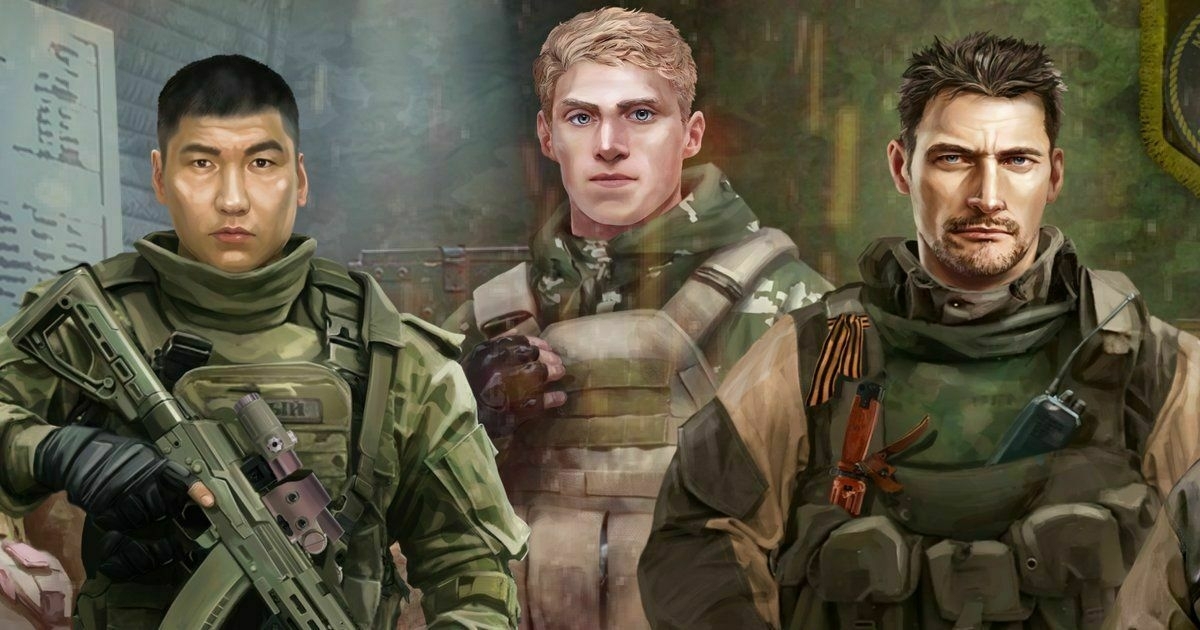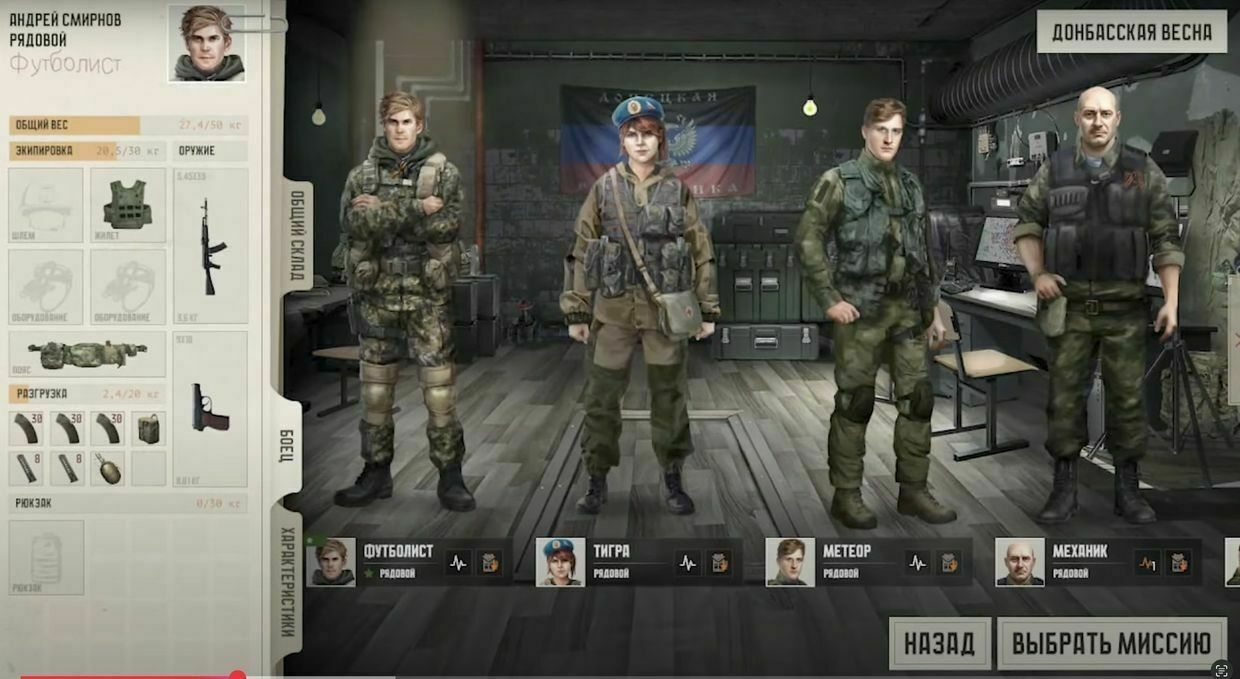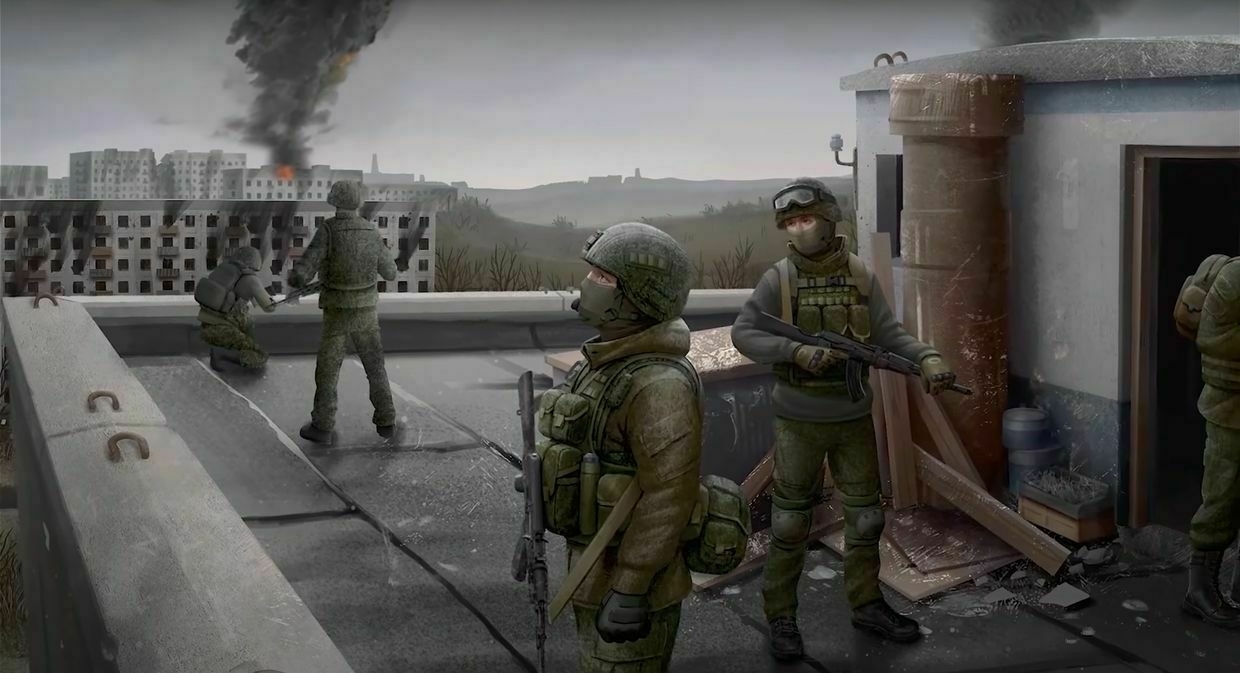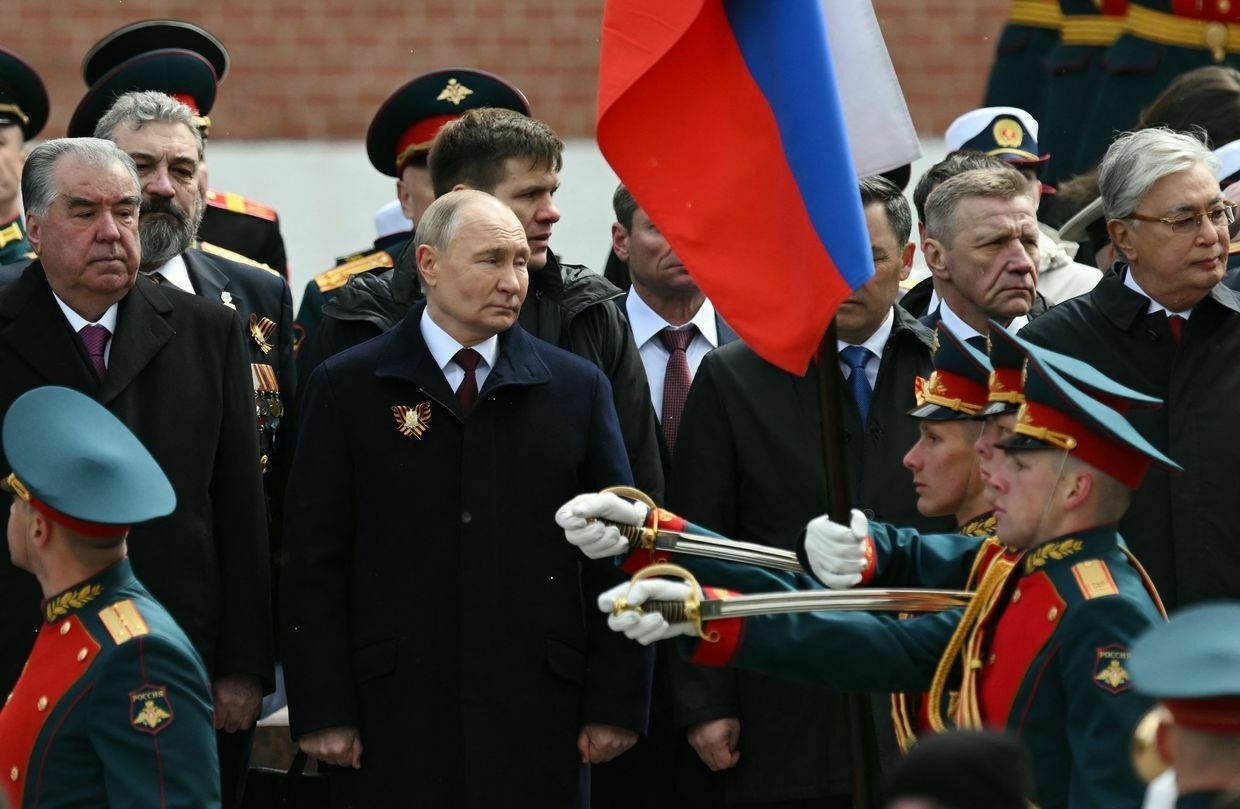
The beginning of the Donetsk and Luhansk oblasts' occupation in 2014, the battle for Mariupol in 2022, and the capture of Avdiivka in 2024 are no longer just episodes of Russian aggression against Ukraine. They are now missions in the new Russian video game Squad 22: ZOV.
Nearly a year after the Russian studio SPN announced in July 2024 that it had started working on the game in cooperation with Russia’s Defense Ministry, Squad 22: ZOV became available for free in Russian, English, and Chinese on Steam, an international distribution platform with over 30 million active users daily.
Before the game begins, players choose from characters from Ukraine’s partially Russian-occupied Donetsk Oblast, where Moscow launched its 2014 invasion under the false pretext of protecting Russian speakers from persecution, a baseless claim widely debunked as Kremlin propaganda.
In the game, the characters say they are seeking to “bring peace” to their homeland — but under the Russian flag. Their mission is to capture positions held by the Ukrainian Armed Forces and advance deeper into Ukrainian territory, repeating Kremlin narratives that portray Russia’s war as a response to “Kyiv’s terror,” another certifiably false claim.
The new game is not the first time Russia has used video games as a vehicle for propaganda aimed at young audiences. But it is the first to focus on Russia’s war in Ukraine, featuring real battles and characters based on actual individuals.
Almost immediately after it was published on Steam, the game was unavailable in Ukraine. As of June, it has received mixed reviews. But experts interviewed by the Kyiv Independent said that even if the game fails to attract a wide audience, it still poses a threat — and there is nothing to stop Russia from continuing to develop another, potentially more effective tool for spreading its propaganda.

“Saying that Squad 22: ZOV promotes the genocide of Ukrainians, justifies the terrorism of the Russian army, and presents itself as ‘a savior from the Nazis’ is an understatement,” Mykhailo Hrabar, a Ukrainian gaming blogger with a nickname OLDboi, told the Kyiv Independent.
The first Russian tutorial on how to wage war in Ukraine
Squad 22: ZOV was produced by Russian national Alexander Tolkach, who held various positions, including in Ukraine, before working on the video game.
Tolkach was a diplomat in Europe, led external communications at DTEK, Ukraine’s largest private energy company, and worked for Hungarian video game developer Gaijin Entertainment, particularly on the War Thunder video game popular among soldiers as a military simulator.
In an interview with pro-Russian military blogger Kirill Fedorov, Tolkach said Russia’s Defense Ministry contacted him at the beginning of 2024 to develop a game as soon as possible “to demonstrate that we can.” Tolkach also said that Russian companies are usually reluctant to make games about the Russian war in Ukraine because of their dependence on international partners and the threat of sanctions.
“The Russians are trying to figure out how far they can go with their future, more expensive, technically superior games, with which they can attract the attention of Western players and pour anything into their ears.”
"We had to launch our own studio. The work continued, and we released the game in nine months (on the local market). It is not the perfect one, but we are not ashamed. And most importantly, we showed people: 'Look, nothing happened to us,'" Tolkach said on May 20 on Fedorov Live, referring to sanctions or bans from the international gaming community.
The game frequently refers to pro-Russian narratives that glorify the Russian army and justify Russian aggression, calling for the "liberation" of Russian-occupied Ukrainian territories fron Ukraine. The developers also said on the game’s website that they consulted with those who participated in Russia's war in Ukraine, including Vladislav Golovin, a career Russian military officer who took part in the siege of Mariupol in Donetsk Oblast in 2022.
According to the game's description on Steam, Squad 22: ZOV is recommended by the Russian army as a basic infantry tactical manual for cadets and members of Yunarmiya ("Youth Army"), the state-sponsored youth organization that combines ideological indoctrination with military training for children and teenagers.

Oleh Kulikov, an esports analyst, told the Kyiv Independent that the fact that a game is recommended at the state level may interest an average user even more than its content. According to the expert, Squad 22: ZOV is of low quality and will be difficult to affect a wide range of users worldwide.
"For the most part, propaganda video games are low-grade and unattractive, and this is where the Barbra Streisand effect comes in," Kulikov said, referring to a phenomenon where an attempt to hide something only brings more attention to it.
Oleksandr Petryk, a Ukrainian esports commentator with the nickname Petr1k, echoed Kulikov's stance, saying that Squad 22: ZOV has graphics of games released in the early 2000s, and is unlikely to attract young people in the way that the Ukrainian video game S.T.A.L.K.E.R. has. However, even if someone accidentally downloads the game abroad and sees the interpretation of events in Ukraine from a Russian perspective, it will play into Russia's hands, he added.
How to resist Russian propaganda in cyberspace?
Squad 22: ZOV, made in a matter of months and openly funded by the Russian government, is unlikely to cause large-scale damage to Ukraine, but a better Russian product can, the experts interviewed by the Kyiv Independent said.
"The Russians are trying to figure out how far they can go with their future, more expensive, technically superior games, with which they can attract the attention of Western players and pour anything into their ears," game blogger Hrabar said, adding that Russia is already developing better projects, particularly about Russia's Wagner Group of mercenaries.
According to the experts, Steam, owned by the American Valve Corporation, has already been involved in scandals when controversial games were published on its platform that illegally collected user data or had a plot that contained sexual violence and were removed only after public outcry. The fact that Steam approved Squad 22: ZOV was no surprise.
"Steam has very weak moderation, which is partially performed not even by Valve employees, but by active community members," Hrabar said. "After the platform canceled the Greenlight system, which allowed the community to vote for games to be published, the pipe burst. Now you can get to the platform even with a piece of crap."
Esports analyst Kulikov added that to effectively counter Russian propaganda in video games, Ukraine must develop its own, thereby promoting the Ukrainian brand on the international market. At the same time, the Ukrainian government should respond to the launch of such propaganda projects as Squad 22: ZOV.
"Ukraine's Digital Transformation Ministry needs to reach out to companies like Valve Corporation, the very next day after the game is released or announced," Kulikov said.
"Even if it doesn't work, it will help to develop connections to establish operations and prevent something more serious from happening in the future. And it is bound to happen."
Author's note:
Hi, this is Kateryna, the author of the article. Thank you for reading. The war between Ukraine and Russia has long gone beyond the battlefield, and Russian propaganda is widely spread in the media, movies, and video games. The game Squad 22: ZOV is one of many examples of Russian propaganda tools, targeting one of the most vulnerable audiences, youth. If you want to see more articles like this, and support us in countering Russian propaganda, consider joining our community today.
 The Kyiv IndependentChris York
The Kyiv IndependentChris York
